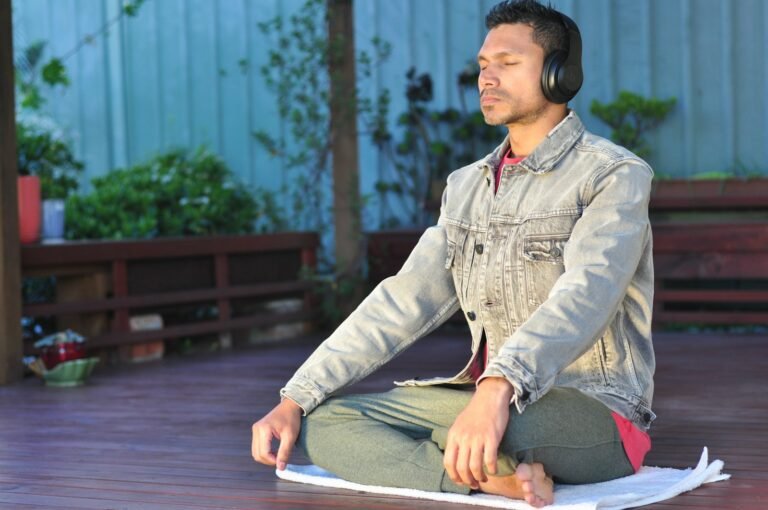How to Develop a Morning Routine for Success
This guide is designed to help you create a morning routine that sets the stage for a successful day ahead. I’ll share my tips on how to wake up refreshed, focus your mind, and energize your body, so you can feel ready to tackle whatever comes your way. With a little planning and commitment, you can transform your mornings into a powerful launching pad for your day. Let’s dive in and build a routine that works for you!
Key Takeaways:
- Establish a consistent wake-up time to regulate your body’s internal clock.
- Incorporate activities that promote physical and mental well-being, such as exercise, meditation, or journaling.
- Limit distractions by keeping your morning routine focused and setting aside time for imperative tasks.
- Plan your day the night before, providing clarity and intention for the morning ahead.
- Gradually build your routine, adding new elements over time to ensure sustainability and enjoyment.
Crafting Your Unique Morning Playbook
Identifying Your Goals and Priorities
Focusing on your personal and professional objectives can significantly influence how I structure my mornings. I start by reflecting on what I truly want to achieve in the near and distant future. This process could involve jotting down goals in categories like health, career, relationships, and personal growth. For example, if improving my fitness is a priority, I might set a goal to exercise four mornings a week. Meanwhile, if honing my skills in a certain area is important for career advancement, I might allocate time for online courses or reading relevant materials.
Prioritizing my goals allows me to dedicate specific slots in my morning routine to each area that matters most to me. If I find that family connections help ground my mental clarity, I may include time for breakfast with loved ones. By consciously aligning my goals with my routine, I create a more fulfilling start to each day, setting the stage for success in all aspects of my life.
Assessing Your Current Morning Habits
Understanding how I currently spend my mornings reveals opportunities for enhancement. I often keep a journal for a week to track my activities, taking note of what time I wake up, engage in, and how certain routines make me feel. This comprehensive view highlights patterns; for instance, if I see that scrolling through social media consumes my first hour, I realize this isn’t the best start for my mindset. Such honesty helps me make informed choices as I design my new routine.
One eye-opening exercise involves evaluating my energy levels at various stages of the morning. For example, I might notice that I feel most energized after my workout, which suggests I should schedule that activity first rather than fitting it in later when I might feel less motivated. Recognizing these insights allows me to reformulate my morning rituals to boost productivity and overall well-being, while also ensuring that I stay true to my individual goals.
The Science of Morning Success
How Sleep Quality Influences Your Day
Sleep is the foundation of a productive morning. Studies have shown that quality sleep enhances cognitive function, emotional regulation, and overall health. When I prioritize good sleep—aiming for the recommended 7-9 hours—I notice a direct correlation to how I perform throughout the day. By keeping my sleep environment cool, dark, and quiet, and establishing a bedtime routine that excludes screens, I wake up feeling refreshed and ready to tackle my morning routine. On days when I’ve skimped on sleep, I often find my mental clarity and motivation plummeting around midday, impacting my productivity significantly.
Furthermore, poor sleep can lead to an increased likelihood of stress and irritability, making it more challenging to embrace the positive morning mindset that I strive for. The National Sleep Foundation emphasizes the importance of sleep quality over quantity; even if I sleep for a full eight hours, interrupted or restless sleep can detract from the benefits I feel in the morning. Developing habits that promote quality rest, like consistent sleep schedules and mindful winding-down practices, can create a considerable ripple effect on my daily achievements.
The Role of Routine Consistency
Establishing a consistent morning routine not only primes you for the day but also reinforces positive habits over time. I’ve noticed that sticking to the same wake-up time each day, even on weekends, enables my body to adapt to a natural rhythm. This consistency reduces the temptation to hit snooze or extend my waking time haphazardly, making mornings feel less daunting and more purposeful. Research indicates that regularity in our daily schedules strengthens our internal clocks, enhancing the quality of sleep and increasing energy upon waking.
Moreover, there’s an undeniable psychological aspect to routine consistency. As I engage in the same sequence of activities each morning—be it meditation, exercise, or journaling—my mind becomes more attuned to the flow of the day ahead. This predictability creates a sense of safety and calm, allowing me to approach challenges with a clear head. Neuroscience supports this, revealing that repeated patterns in behavior can reshape neural pathways, fostering resilience and efficiency in daily tasks.
Designing Your Ideal Morning Activities
Crafting an effective morning routine involves a thoughtful approach to the activities that will elevate your day from the very start. By selecting the right combination of practices, you can cultivate a sense of accomplishment and set a positive tone for whatever lies ahead. Take a moment to think about how you want to feel in the morning—energized, calm, or perhaps focused? Each person’s ideal routine will look different, but the core components can often lead to greater productivity and well-being.
The Power of Movement: Incorporating Exercise
Exercise can be a transformative element in my morning routine. Even a simple, 20-minute workout significantly boosts my energy levels and enhances my mood. I often gravitate toward activities that I genuinely enjoy, whether that’s a brisk jog around the park, a weightlifting session at the gym, or a flow of yoga in my living room. Not only does this movement get my blood pumping, but studies have shown that physical activity releases endorphins, which can improve focus and reduce stress throughout the day. You might experiment with a variety of workouts to discover what invigorates you the most.
Consistency plays a key role as well. By committing to a specific time slot for morning exercise, I’ve noticed it becomes an ingrained habit that I actually look forward to. This regularity builds momentum, and over time, I’ve found that my physical and mental resilience improves tremendously. You might want to set a certain number of days per week to start; even a couple of sessions initially can have a noticeable impact.
Mindfulness Practices: Meditation and Reflection
Integrating mindfulness practices like meditation and reflection into my morning routine has profoundly changed how I approach my day. Spending just 10 minutes in meditation allows me to center my thoughts and gain clarity. I focus on my breath, allowing distractions to fade, and in that silence, I often uncover insights that propel me forward. Some days, I prefer guided meditation apps, while other days, I simply sit in quiet contemplation. This dedicated time nurtures my mental clarity and emotional well-being.
Journaling complements my meditation practice beautifully. In the past, I often overlooked the power of written reflection, but now, I jot down my thoughts, intentions, or even gratitudes each morning. This process not only enhances my self-awareness but also provides a snapshot of my evolving mindset. Sessions can be brief—just a few sentences can provide clarity and direction. By the end of each week, I enjoy looking back to see trends in my thoughts and emotions, reinforcing positive behaviors and helping me adjust my goals.
Mindfulness practices don’t have to be lengthy or complicated. Whether you choose a simple breathing exercise or a longer meditation session, the key is consistency. By dedicating even a few minutes each morning, you can cultivate a deeper sense of peace that carries throughout your day. Experiment with different styles of meditation or journaling prompts to find what resonates with you, making it an integral part of your personalized morning routine.
Building Sustainable Habits
Establishing a morning routine is about consistency, but it’s also about creating sustainable habits that evolve with you. Over time, I’ve learned that not every aspect of my routine is set in stone; life changes, and I need to adapt alongside it. One way I do this is by periodically assessing my routine and experimenting with new activities. This keeps things fresh and allows me to discover what truly resonates with me. For instance, I swapped out traditional meditation for a walking meditation in nature. This small tweak not only rejuvenated my morning but also deepened my appreciation for the world around me.
To solidify my morning habits, I incorporate elements that promote accountability. I’ve found that sharing my goals with a friend or joining a morning ritual group can motivate me to stay committed. I also track my progress through journaling or apps, making it easy to see how my efforts yield results over time. Celebrating small wins, like completing my morning workout or writing in a gratitude journal, further cements these habits, reinforcing the behaviors I want to maintain.
Tricks for Keeping Your Routine Engaging
Engagement is key to maintaining a morning routine that feels less like a chore and more like a pleasure. I’ve discovered that mixing up the elements of my routine occasionally keeps my enthusiasm high. For example, I might try different podcasts during my morning workout or change the scenery by taking my journaling session to a nearby park. Each week, I set aside time to review what worked and what didn’t, allowing myself the freedom to switch gears without guilt.
Another trick I’ve found effective is to tie my morning activities to personal interests and goals. If I’m passionate about cooking, I’ll dedicate part of my routine to trying a new healthy breakfast recipe. This fosters a sense of discovery and creativity, making my morning not just productive but also enjoyable. Engaging with hobbies in the morning energizes me and ensures that I’m excited to rise and shine each day.
Overcoming Obstacles: Staying Committed
Committing to a morning routine isn’t without its challenges. Life gets busy, and motivation can wane, but it’s crucial to have strategies in place to navigate those tough days. I find that setting clear intentions for what I want to achieve each morning helps me push through slumps. Instead of viewing my routine as a long list of tasks, I focus on the feelings I want to cultivate—like energy, clarity, or peace—making it easier to get started. Additionally, having a backup plan for when I encounter roadblocks is invaluable; for instance, if I can’t find the time for a lengthy workout, I’ll do a quick five-minute stretch instead.
Maintaining commitment requires self-awareness; I pay attention to patterns that lead to slip-ups, like late nights or skipped breakfasts. Understanding these triggers helps me recalibrate. On days when motivation is low, I remind myself of the benefits and possibilities my established routine brings. The clarity I’ve gained and the accomplishments I’ve nurtured serve as inspiration to stay on track, no matter how busy life gets.
Evaluating Your Progress and Making Adjustments
Tracking Your Routine Effectiveness
Regularly assessing the effectiveness of your morning routine is key to ensuring it continues to serve your goals. I find it helpful to keep a simple journal where I note how I feel and what I’ve accomplished in the mornings. It might involve jotting down my energy levels, noting productivity bursts, or any challenges I encounter. After a couple of weeks, I take a look back at those entries to see patterns. For example, if I consistently feel lethargic right after my morning workout, it might be a sign that I need to switch up my exercise routine or change the timing of my sessions.
Utilizing an app can also simplify tracking your routine’s effectiveness. I use one that allows me to log activities and reflect on my mood levels throughout the week. Data analytics can help identify habits that positively or negatively impact my mornings. These insights provide a clearer picture of what’s working best and what might require a different approach, allowing me to refine my routine as needed.
Adapting to Life Changes and New Goals
Life is constantly evolving, and so should your morning routine. Personal shifts like starting a new job, moving to a different city, or even entering a new phase in relationships can necessitate adjustments to my daily habits. If I find that I’m waking up more anxious about the day ahead due to an increased workload, I might decide to integrate some mindfulness exercises or a few minutes of meditation into my mornings. This adjustment can offer me a renewed sense of balance and calm before submerging into tasks.
Shifting priorities in my life often prompt me to revisit the goals that inform my routine. Perhaps there’s a new project I want to pursue, or I’m aiming to enhance my fitness level for an upcoming event. In these cases, I take the opportunity to assess my current habits and see where I might need to allocate more focus—be it waking up a little earlier for a new workout or dedicating a portion of my time to learning a new skill. Evolving alongside my goals keeps my morning routine relevant and invigorating.
Adaptation might also entail looking beyond just immediate changes. With long-term goals, such as mastering a new language or achieving a personal milestone, my routine needs fine-tuning as well. I may decide to set aside specific days for concentrated study or dedicate part of my mornings to skill-building exercises. These regular updates to my routine reflect my journey and help me maintain my enthusiasm toward achieving my aspirations.
Summing up
Upon reflecting on how to develop a morning routine for success, I find that the key is simplicity and consistency. By incorporating a few beneficial activities into your mornings, you can set a positive tone for the rest of your day. Whether it’s a brief workout, some meditation, or even a few moments spent journaling, I believe that focusing on what truly resonates with you is the best approach. Listening to your body and mind can lead to discovering what truly energizes you as you start your day.
If you’re looking for inspiration, I highly recommend checking out the Top 10 morning routines of highly successful people – Ideas. You might find techniques that resonate with you or even spark new ideas. Ultimately, your morning routine is a personal journey, and by experimenting and adjusting over time, you can create a routine that enhances your productivity and overall happiness.
FAQ
Q: What are the benefits of having a morning routine for success?
A: Establishing a morning routine can help enhance productivity, boost mental clarity, and reduce decision fatigue. It sets a positive tone for the day, allowing individuals to approach their tasks with a focused mindset. Additionally, routines can foster healthier habits, such as exercise or meditation, contributing to overall well-being.
Q: How can I get started with creating my own morning routine?
A: To begin, identify your priorities and goals. Reflect on what activities bring you joy or make you feel productive. Start by scheduling a few key activities, such as reading, journaling, or exercising. It’s important to design a routine that aligns with your lifestyle and personal preferences, making it sustainable in the long run.
Q: How long should my morning routine last?
A: The duration of a morning routine can vary based on individual schedules and personal preferences. A good starting point is to aim for 30 minutes to an hour. As you become accustomed to your routine, you may find ways to expand or shorten it based on what works best for you. The key is to make it a fulfilling experience rather than a chore.
Q: What should I include in my morning routine?
A: Your morning routine can incorporate various activities that support your mental, physical, and emotional wellbeing. Some ideas include meditation, gentle stretching or exercise, a healthy breakfast, goal setting for the day, or even reading. Tailor your routine to reflect your aspirations and interests, making it a motivating start to your day.
Q: How can I maintain consistency in my morning routine?
A: To keep your routine consistent, try to wake up at the same time each day, even on weekends. This helps regulate your body’s internal clock. Additionally, track your progress and celebrate small achievements. Finding an accountability partner or using reminders can also support you in sticking to your routine, transforming it into a habit over time.















